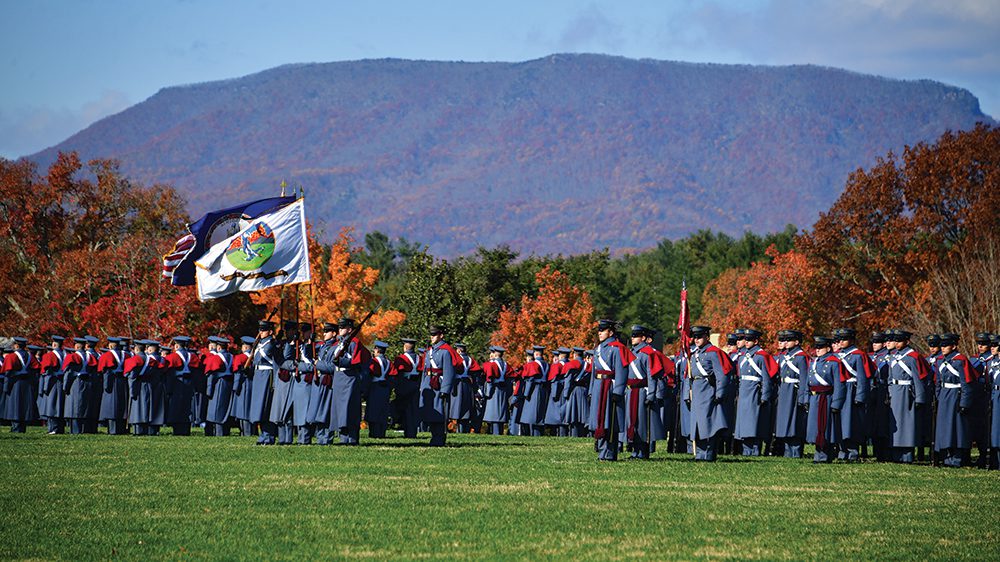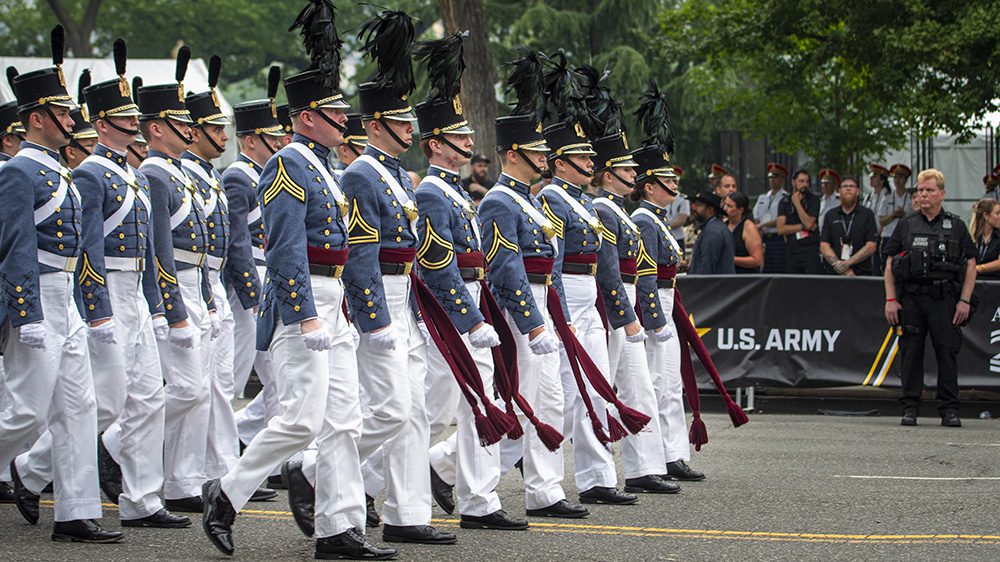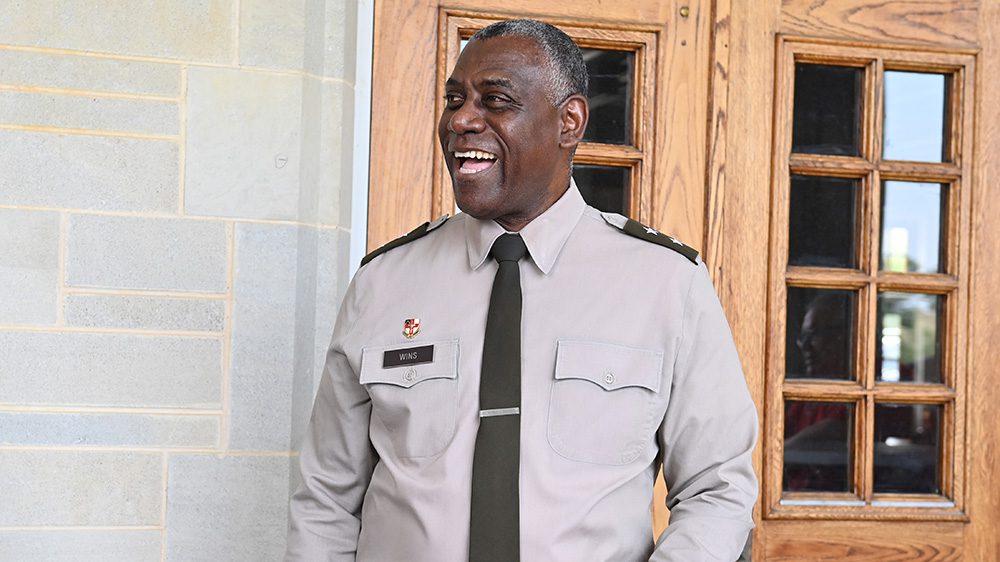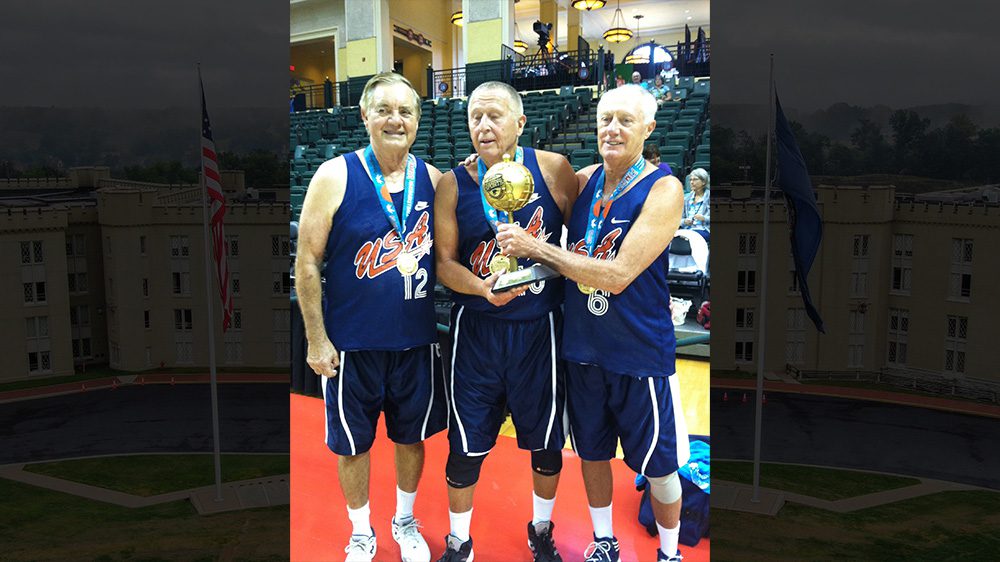A couple of years ago, Kurt Polk ’95, VMI Foundation trustee, was asked to explore a new option for supporting the Institute – donor advised funds – due to their convenience, tax benefit and impact on the lives of current and future cadets.
“We were discussing the need to expand the opportunities that our donors had to support the Institute, and one of the options that we examined was donor advised funds,” said Polk, the co-chairman of the VMI Foundation Major Gifts & Planned Giving Sub-Committee and chairman of the committee formed to develop the idea of donor advised funds. “The more we discussed it among the members of the subcommittee and committee, the more it was affirmed as an excellent way to match the passions of the VMI family to their philanthropy.” These funds give donors the opportunity to make charitable gifts and receive tax benefits, and then allocate funds to certain charities.
The VMI Alumni Agencies were introduced to the idea of a donor advised fund within the Foundation several years ago by then-trustee of the VMI Foundation, John C. Miller II ’61. Asked why he thought DAFs would work for VMI, he explained that he knew they were popular with donors – his local community foundation in St. Louis, Missouri, uses them to great effect. “The people who establish these funds usually want to time sizable charitable contributions to take a maximum tax advantage in a current year but may not be ready to give to specific charities in the same year. A DAF allows them to wait – sometimes for years – before directing their support to a variety of charities or various functions within a single charity. The DAF is a great vehicle for that purpose.” Miller explained how a DAF works. “A donor makes a gift to the DAF within an organization. That organization acts as a fiduciary, investing the gift and awaiting a donor’s advice as to the grants he or she wishes to make, which includes amount, timing and specific charities. The holding organization’s advisory committee then considers the requests, and if they agree to them, the funds are disbursed from that donor’s account.”
Terrie I. Conrad, VMI Foundation vice president of development and estate administration who handles the day-to-day operations of the fund, said, “A donor can establish one of these funds within the VMI Foundation for as little as $25,000. Another advantage that these funds have is their relative simplicity. There are no annual reporting requirements beyond the records needed to claim a tax deduction for donations to them, and there is no requirement to report donations from them.” One of the few restrictions, according to Conrad, is that any grant the donor wishes to make can be made only to non-profit organizations that hold 501(c)(3) status. “The decision to include a DAF option made VMI the second public college in Virginia to adopt this fund,” said Conrad. “The other is Virginia Tech.”
Donors make irrevocable gifts of cash, securities or even complex assets, such as real estate, to VMI’s donor-advised fund. Their particular fund is then managed as part of a broader gift fund – in VMI’s case, the BNY Mellon Charitable Gift Fund.
“I’ve used a donor advised fund since 2006, and I have long been a huge advocate for their adoption by VMI,” said Polk. “Even through the global financial crisis and this recent pandemic, the growth of assets in the fund have let me expand my giving to VMI and other charities. Not to be minimized is the simplification of reporting charitable giving from a tax preparation standpoint. I’ve very thankful that Terrie Conrad, David Prasnicki and the entire Foundation team worked so hard to establish a robust DAF program.”
There are some rules specific to the VMI fund. Once a fund is established, additional contributions to it must be at least $1,000. Also, all funds up to and including $100,000 are split equally between a discretionary account and a VMI Alumni Agencies account. For donors who establish funds with gifts greater than $100,000, this split between the two types of accounts is negotiable, although a minimum of $50,000 must be placed in the Alumni Agencies account.
Whenever donors are ready to start making grant requests, they may make them from their discretionary account, their Alumni Agencies account or both. Grants from the former may go to any eligible charities, including the VMI Foundation and Keydet Club. Those from the latter must go to funds managed by the VMI Foundation and VMI Keydet Club. Grants must be a minimum of $250, and they may be made anonymously.
“VMI will face numerous challenges in the next several months, perhaps years, as it responds to the short- and long-term effects of the pandemic,” said Stephen E. Hupp ’84, VMI Foundation president. “As it has in other difficult times in its history, it will need the consistent and generous support of the VMI family to ensure it emerges from this time as strong – if not stronger – than before the crisis began.”
“Donor advised funds present alumni and friends with the remarkable ability to build up money for the Institute – as well as other charities – which they then can target on activities that will benefit the most from their investments. I am sure they will prove to be invaluable to VMI in the future.”
For more information on the donor advised funds at VMI, please visit our Ways to Give page or contact Terrie Conrad by email at tconrad@vmiaa.org or by telephone at 800-444-1839, ext. 238.

Learn More About the Power of Donor Advised Funds.
See More Details-

Scott Belliveau '83 Communications Officer - Executive Projects
The communications officer supports the strategy for all communications, including web content, public relations messages and collateral pieces in order to articulate and promote the mission of the VMI Alumni Agencies and promote philanthropy among varied constituencies.




